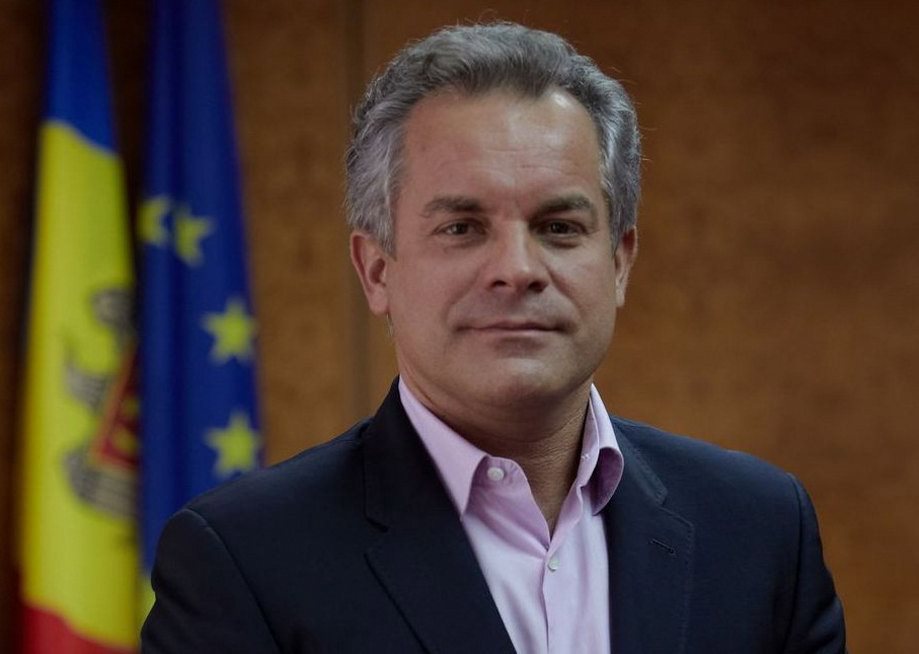
Moldovan Billionaire Overthrows Coalition Government From Within (Part Two)
Publication: Eurasia Daily Monitor Volume: 12 Issue: 200
By:

Moldova is experiencing a political coup, executed by billionaire Vlad Plahotniuc’s team within the “pro-Europe” coalition government, and coordinated with leftist and pro-Russia parties in the parliament and outside it. The aim of this operation is to expand and guarantee Plahotniuc’s control of Moldova’s state institutions via his Democratic Party (DP), the DP’s satellite parties, and law enforcement agencies currently headed by Plahotniuc loyalists.
The pro-Western Liberal-Democrat Party (LDP) forms the main obstacle still standing in the way of this operation, and hence is the main target of the intra-coalition coup. The “pro-Europe” coalition as such is not Plahotniuc’s target, it is his instrument and his cover. He has toppled the coalition in order to re-constitute it with an LDP reduced to a supine rump.
Those nuances are crucial to understanding the unfolding political coup in its three phases: first, the arrest of LDP’s chairman and financier Vlad Filat on October 15; second, the parliamentary no-confidence motion that removed Prime Minister Valeriu Strelet (Filat’s successor as LDP leader) on October 29; and third, as planned, reformatting the “pro-Europe” coalition to strengthen Plahotniuc’s influence within it (see EDM, October 19, November 3).
This sort of an intra-coalition coup might have been initiated some months earlier; its operational prerequisites and its instruments were all in place (law enforcement agencies, political allies of various colors in and out of parliament, a crisis atmosphere in the country demanding heads to roll). What triggered the operation was Plahotniuc’s belief that Filat’s LDP was making a deal with the anti-“oligarchic,” regime-change movement “Platform for Dignity and Truth” (see EDM, October 6).
On October 4, Platform supporters had picketed and threatened to break into Plahotniuc’s business headquarters, but ignored Filat’s office building. On October 14, Filat—in a move highly unusual since the 2013 Plahotniuc-Filat non-aggression pact—demanded the resignation of Prosecutor-General Corneliu Gurin, a Plahotniuc man. Plahotniuc promised this in front of the assembled party leaders that evening, only to send Gurin, the next morning (October 15), to the parliament to demand and obtain Filat’s arrest (see EDM, October 19).
Prime Minister Strelet (in that post since July 30, and doubling as LDP leader after Filat’s arrest), finally raised again the flag that Filat had lowered, that of resisting Plahotniuc’s capture of the state. From October 15 onward, Strelet demanded:
· the de-politicization of law enforcement and judiciary bodies, starting with resignations of the chiefs of the Prosecutor General’s Office, the National Anti-Corruption Center, and six other institutions, all headed by nominees of Plahotniuc’s Democratic Party under the coalition agreement;
· a constitutional referendum to have the state president elected by popular vote, instead of elected by parliament, where Plahotniuc controls enough votes to determine the outcome of the March 2016 presidential election;
· the return of Chisinau’s International Airport from the control of obscure Russian companies back to Moldovan state control, if the investigation that Strelet has ordered would conclude that the airport was handed over unlawfully or the Russian companies are derelict; and for
· the parliament to hold a special plenary session at which Platform for Dignity and Truth leaders would be invited to speak.
Strelet rallied the LDP to these demands. He also announced that he had twice refused to answer Plahotniuc’s phone calls, in order to preclude any attempts from “this private person” to propose some political deal (Plahotniuc currently holds no public post of any kind). The LDP moved from unconditional to a conditional participation in the “pro-Europe” coalition (Ziarul National, Jurnal.md, Unimedia, October 15–29).
This triggered the second phase of the intra-coalition coup against the LDP. On October 22, the Communist Party (currently allied with Plahotniuc’s DP and discussing a merger with it) suddenly endorsed the opposition Socialist Party’s pending motion to remove Prime Minister Strelet. The Communist votes made it possible for the motion to reach the floor; and Marian Lupu, the figurehead leader of Plahotniuc’s Democratic Party, threatened to support the no-confidence motion unless Strelet resigned on his own accord. As Strelet refused to resign, the motion against him passed with 65 votes from the Democratic, Communist and Socialist parties in the 101-seat parliament.
Ironically, the motion’s wording reproduced the Constitutional Court’s 2013 ruling to disqualify Filat as prime minister—namely, “suspicions of corruption hovering over him,” though no further substantiated. In removing Strelet, however, Plahotniuc’s parliamentary group went beyond the motion, explaining that Strelet had forfeited their political confidence.
In his valedictory remarks as prime minister, Strelet again urged other parliamentary groups to “free themselves from captivity to one man.” He confirmed his intention as party leader that the LDP “shall no longer participate in backstage decisions [by leaders of this ‘coalition,’ and] no longer be complicit with the existing system and its preservation.” These words echoed Filat’s belated admission of past collusion with “this system,” and his call to dismantle it, on the day of Filat’s arrest (Ziarul National, Jurnal.md, Unimedia, October 29–November 3).
Strelet proposes distancing the LDP from this “coalition,” potentially going into the opposition as a pro-Western force. Other options are being debated internally; whereas, some European diplomats urge preserving this “pro-Europe” coalition for fear of pre-term elections, which could bring pro-Russia parties to power (Tribuna, November 1–3).




